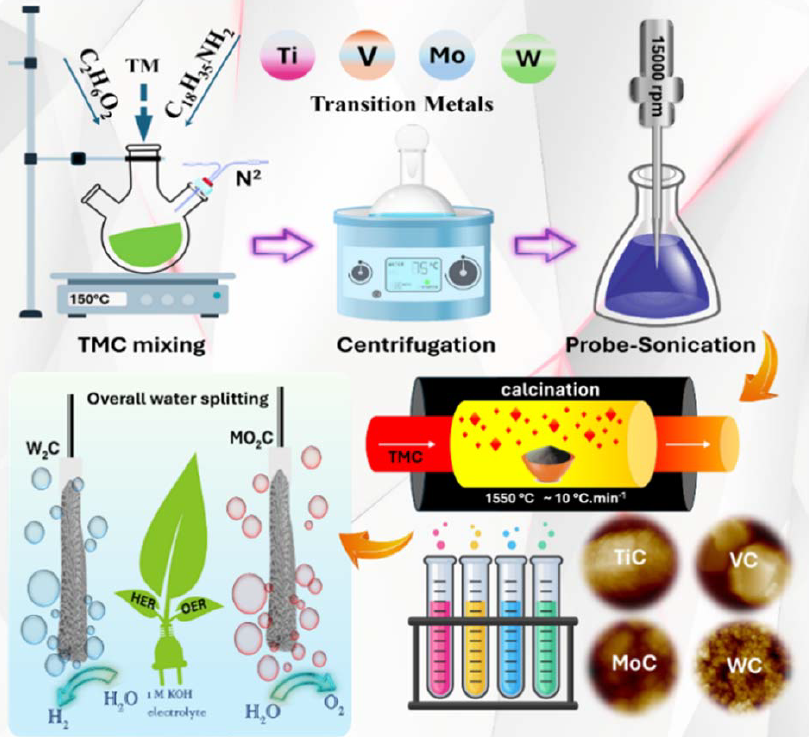| (2025.03) Exploring structural and electronic properties of transition metal carbides (T = Ti, V, Mo, & W) as efficient catalysts for overall water splitting withthe DFT study | |||||
| 작성자 | 관리자 | 작성일 | 2025-06-12 | 조회수 | 89 |
|---|---|---|---|---|---|
|
· 논문명 : Exploring structural and electronic properties of transition metal carbides (T = Ti, V, Mo, & W) as efficient catalysts for overall water splitting withthe DFT study · 저 자 : Tata Sanjay Kanna Sharma,Jayasmita Jana, Beena Mol Babu, Mohamed A. Ghanem, K. C. Bhamu, K. S. S. V. Prasad Reddy, Kuo-Yuan Hwa, Sung Gu Kang, Jin Suk Chung, Seung Hyun Hur*, Won Mook Choi* · 게재지 : Journal of Materials Chemistry A (2025, 13, 7488-7502) · 초록 Earth abundant transition metal carbides (TMCs), including titanium carbide (TiC), vanadium carbide (VC), molybdenum carbide (MoC), and tungsten carbide (WC), are considered promising materials to substitute expensive novel metal Pt- and Ir-based catalysts since they can demonstrate exceptional electrocatalytic performance towards overall water splitting due to their unique electronic and structural properties. Herein, this work demonstrated the facile synthesis of different TMCs and investigated their electrocatalytic activities for alkaline water electrolysis. The prepared WC exhibited superior electrocatalytic activity towards the hydrogen evolution reaction (h100 = 295 mV) and MoC showed excellent electrocatalytic activity towards the oxygen evolution reaction (h100 = 373 mV), which are comparable to those of commercial Pt/C and IrO2 catalysts, respectively. The mechanistic investigation indicated that the optimized orbital hybridization of TMCs balances the adsorption and desorption of reaction intermediates resulting in variations in their efficiency. In addition, the theoretical DFT study demonstrated the oxidative response of the prepared WC and MoC surfaces for overall water splitting by identifying the chemisorbed oxygen atoms.
|
|||||


